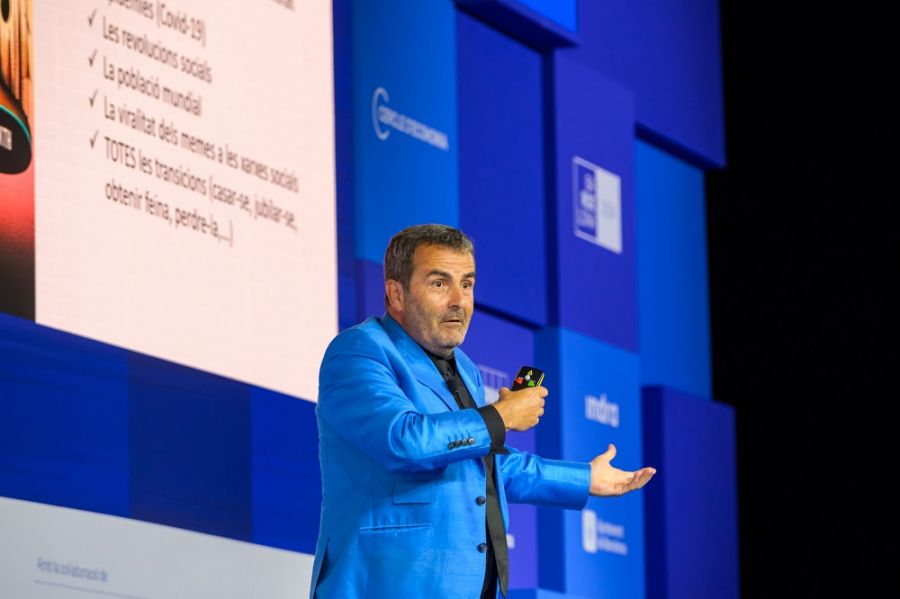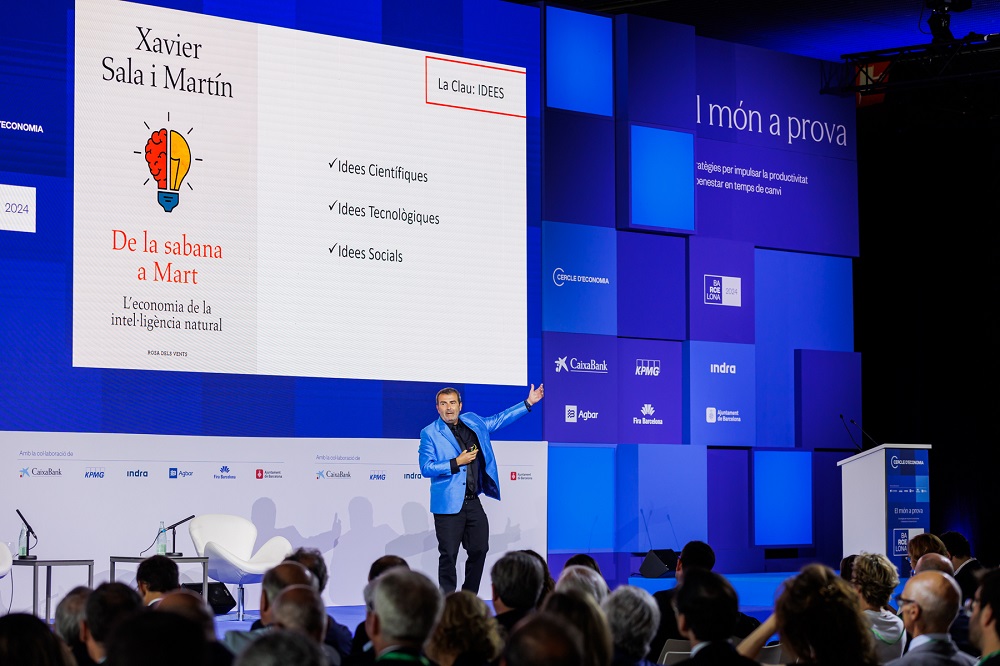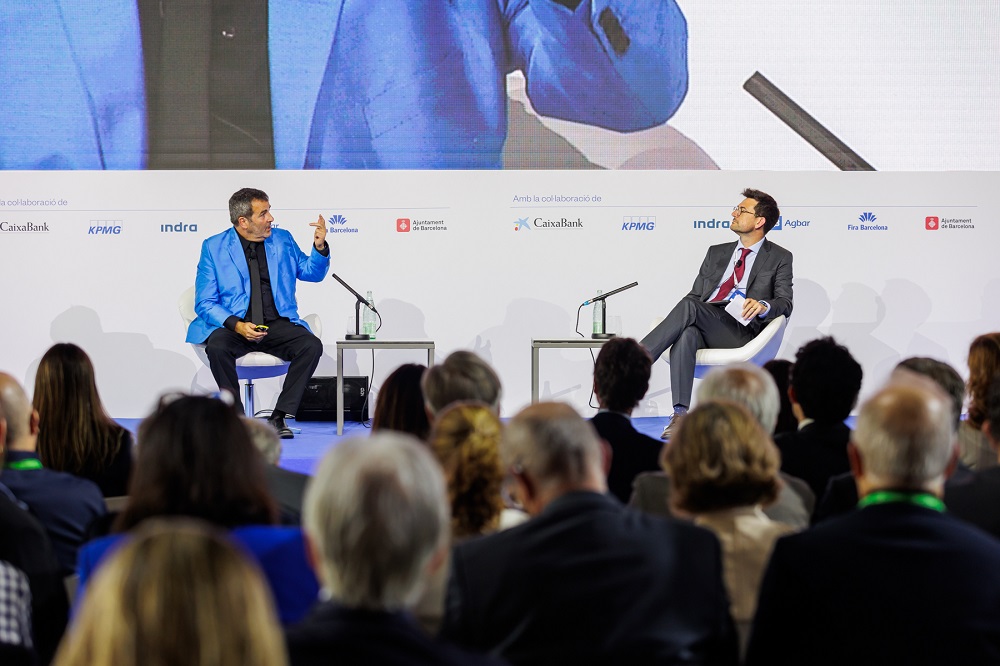
Oriol Aspachs, member of the Board of Directors of Cercle d'Economia, introduced Xavier Sala i Martín and the conference by the professor and also chief economic advisor of the World Economic Forum in Davos (Switzerland), focused on Artificial Intelligence and the challenges associated with its development.
Xavier Sala i Martín placed Artificial Intelligence (AI) in the context of human evolution throughout a history marked by scientific and technological progress, but also by social organization. And he referred to how, currently, a technology that "has existed for decades and is being researched and improved" generates conflicting opinions among citizens regarding the advantages, disadvantages and dangers that its dissemination will entail. He placed the epicentre of this debate in the dialectic between 'boomers' (supporters) and 'doomers' (detractors).
Beyond the predictions that have appeared in recent years about the "exponential" and transformative potential of AI, Sala i Martín warned of the risk of "bubbles" similar to the speculative wave experienced during the 90s of the last century in the field of business projects linked to Internet. However, he recommended that companies "embrace change" and avoid "going against the tide", with an evocation of the appearance of electricity: "at that time there were two types of companies, those that adapted and those that disappeared".
The professor of Economics defined AI as "a statistical model of making predictions that tries to emulate the functioning of the human brain", but that has "limitations". It also features ChatGPT, although the tool "is useful for purging messages or writing emails better," he said.

Truth as a limitation
In his presentation, Xavier Sala i Martín described that "ChatGPT is not designed to tell the truth. It is necessary to make the next word, to construct sentences that resemble those constructed by humans: but that does not imply telling the truth." Another limitation of Artificial Intelligence has to do with data, which is necessary for this technology to extract patterns and make predictions: "In open worlds there is not enough data and you will never have enough data to understand, to cover all possibilities", which can lead to errors (for example, he mentioned a fatal accident linked to autonomous driving tests: "Human psychology leads us to trust a machine that we should not trust and that can end up killing a person," he stressed).
AI: the challenge of productivity
Another of the speaker's reflections was on the effects that AI can have on productivity. He did so, again, based on a parallelism with the introduction of electricity: once its scientific and technological aspects were resolved, the implementation of electricity – the economist recalled – did not immediately translate into an improvement in productivity because the mere replacement of steam by electricity only represented a reduction in costs. It was with Henry Ford and the start-up of the assembly line, he continued, that productivity grew: "This means designing the company differently," he advocated.
Currently, in this era of generalization of AI, Sala i Martín admitted that "one of the surprises that economists have is that there is no increase in productivity" associated with it. "Like Henry Ford, what is needed is for entrepreneurs to redesign the company to make it productive" and, above all, not to fall into the trap of focusing on the cost reduction that its adoption can entail. "Now your part is missing, this is the great challenge," he said, addressing the audience.

Talent, regulation and competition
Once the Keynote was over, a debate began with Oriol Aspachs. The member of the Board of Directors of Cercle d'Economia wanted to focus on the situation in Europe and the United States. On this issue, the professor said that "we have to look at how the talent we have goes to other places." He put it in context: "I think that Artificial Intelligence is symptomatic of what is happening: the great scientists in the field are Europeans, but they all work in companies or universities in the United States or Canada. And if the United States innovates, if China or other Asian countries should be the ones to produce, what will we do?".
And he went even deeper into his critical diagnosis: "(Europe) has made the regulation of Artificial Intelligence. Do we really want a world where the Americans are the ones who innovate, production is in charge of China, and we regulate? It seems to me that it is the wrong way."
Regarding the possible risks of market concentration that the accelerated development of AI may entail posed by Aspachs, the professor of Economics said that "there is such great competition that I believe that very soon many of these technologies will become commoditized."